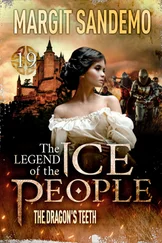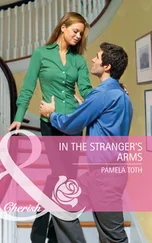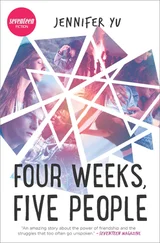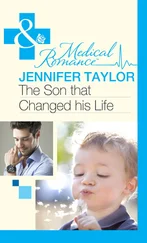“I’m sorry I woke you,” she tells her brother. She shows him the sores, which have spread over her arms and soft face. He’s surprised but also tired and tells her not to worry about it until the morning. The girl turns in her sleep until she can’t stand the itch and pain any longer. She finds a crack razor on the tunnel floor and uses it to carve out each of her sores. It relieves the itch, but then she sees the blood running over her body and she touches her face, slippery with warm blood. She wakes her brother again. He looks shocked and frightened.
“Don’t worry,” he says soothingly. “Maybe you’ll die by morning.” And he turns over to go back to sleep. She lies on her back, thinking of the people walking above her, and accepts this as she accepts the rest of her life. She thinks that she will never be able to join their lives aboveground now that her scars from the tunnel are so obvious. She worries about her family. She closes her eyes, hoping that she’ll die by morning. And then I wake up in a sweat.
AS MY YEAR OF RESEARCH IN THE TUNNELS CONTINUED, I GATHERED more nightmares and concerns for the people I met there. I found it increasingly difficult to stay on the periphery of their lives. Several people became more than subjects; they became my friends. They’d give me advice on everything from office politics to how to handle my boyfriend. They taught me more than I thought I could learn. They opened avenues of thought I had no idea existed.
Their lives became very much a part of my own life. In exploring their world, I sometimes lost my own. They could understand and even help explain some of the changes going on inside of me better than my topside friends. Very early on, I recognized that they gave me more than I could give them. They showed me warmth in their cold, often mean world, which gave me hope, not only for them, but for all things. They even showed me happiness in what first seemed to me a void of darkness. They showed me a beauty to their world that saved me from a deep unhappiness. Most of all, they showed me that, even in the worst conditions, people can care for each other over themselves.
But some also showed me how they can extinguish whatever hope they have and chances they are given. I watched too many people destroy themselves with drugs or alcohol, or neglect to care for themselves in basic ways. They were people who lost the future and had not had the guidance to see how to live the life they wanted. For too many, happiness was anticipating their next hit. I saw drugs overtake love. I witnessed how responsibility is not easily understood by those who have never grown under its protection. Some people with self-destructive ways made me angry—not for the material things I gave them, but for things they took from within myself. They took from me unrelenting optimism. At times, they took my happiness. They brought an emptiness to my adventure, turning a great story into a human one that I might never put to rest.
As much as I trusted the people who talked with me, I always walked into the tunnels clutching the can of mace my father gave me, realizing it was more for luck than protection. I was often terrified walking the tracks alone, so frightened I could not turn back to look for the eyes I felt watching me. Once inside a community, I was safe from the random violence of tunnel life. Even without the aboveground law, there was a network of protection. Violence came more from people who felt threatened. If a stranger in the tunnel approached me and I dropped a name of someone in the tunnels, I was often welcomed.
In some communities, I became a fixture and I could watch people in the tunnels act in ways I was not privy to at the beginning. But by then I began to care too much, and I began to interfere with their behavior.
My last trip into the tunnels was one that I won’t forget. I visited a couple, Tina and Melvin. I didn’t write about this couple in the book because I felt I became too much a part of their story. When I first met them, Tina was panhandling and sometimes turning tricks near Times Square to support “her man,” which actually meant his habit. Watching Melvin’s declining health, Tina steered away from drugs. She said she realized that someone had to care for Melvin and she couldn’t do it high.
Tina and I often spoke about what she wanted in the future. I encouraged her to join a cleaning agency and helped her get a false residential address to aid her in applying for the job. Her work gave her a glowing confidence. She walked tall and smiled frequently and told me that her work gave her back the self-respect she lost to the tunnels. She didn’t want to leave Melvin, but many times I would find her rocking back and forth in her chair in the tunnel, crying.
“He’s dying,” she would tell me. I’m watching him die and I’m killing him.” With the money she made with her new job, Melvin was able to buy heroin. He was only a skeleton of the man with the wide smile I had first known. Melvin refused treatment because he said he didn’t want to leave Tina. I convinced Tina to pretend she also had a drug problem and sign the two of them up on a long waiting list for a six-month drug rehabilitation program. We had talked about doing this for several weeks, and one day she had the confidence to do it. On our way back, we picked up a bucket of fried chicken to celebrate. As she and her man ate and talked, I stood in the corner and watched what I thought would be the unfolding of a success story.
Instead, Melvin became furious. Believing that the city would now take away their welfare because they admitted to drug use, he began to hit Tina and throw her around. I stood up and walked into the brawl between Tina and her man, and I tried to explain that I had been the one to tell Tina to sign up for the program. In an attempt to get to Tina, Melvin threw me against the wall. I woke up a little dizzy, Tina crying over me. She was terrified that I was dead. She asked me to leave and never come back.
I REMEMBER A MAN IN THE TUNNELS WARNING ME WHEN I BEGAN the project that there is a point at which you feel so much you become numb. I was numb for several months and I broke through the numbness by fighting. Still, only now that I am out of the tunnels for good can I let myself be frightened.
When I sat down to write this epilogue, I felt drained and hollow, afraid that I have failed to accomplish what I set out to do. Thoughts of the people swirl around my head. There are many stories left untold. I offer this work as research into this tragedy of our times, notes for the present and future, to prevent more souls from being lost to the tunnels, and perhaps to stir more hope in bringing them back home.

I AM GRATEFUL TO MY LITTLE BROTHER, JOHN, FOR URGING ME to go after this story when I was gently steered away from it three years ago. And my sister Jessica, for always believing I could do it and for masterminding the computer grant form Toth, Toth, Toth, Toth and Erturk.
I’d also like to thank my mother for making sure I ate well and exercised even in the darkest days, and for nursing me when I was sick. And my friends Angela and Greg Copenhaven, Annie Hung, Christine Sharp, Cathy Miley, Karen Cade, and Anne Rosenquist for calling to make sure I was still sleeping aboveground and for making me laugh. Most of my thanks go to Windley, for getting me through the tunnels and bringing me back to the wonders aboveground.
Los Angeles Times editor Roger Smith and reporters Karen Tumulty and Josh Getlin were wonderful in believing in the story and giving me the confidence to pursue it. Pat Welsh, Steve Clark, and Philip Ruiz were a great help with research and computers. Computer wizard Hank Kehlbeck also helped remarkably in converting the text on the twelfth hour.
Читать дальше













